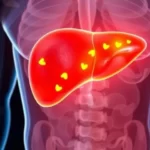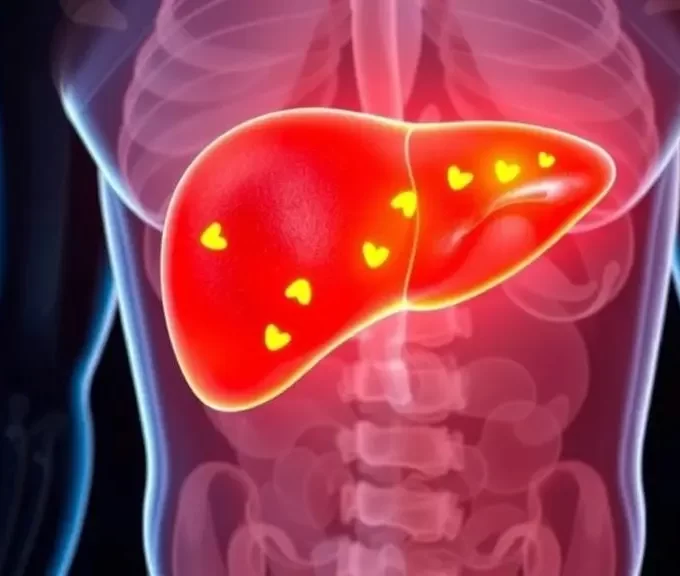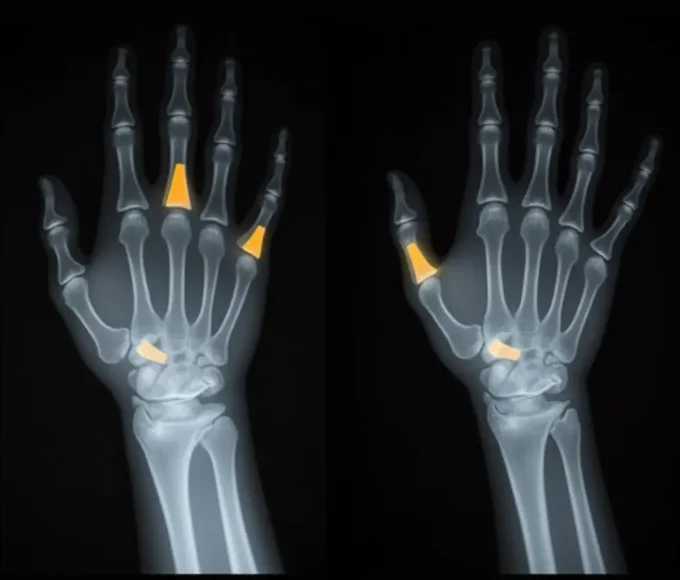Malaria isn’t just a fever. It’s a life-threatening parasitic disease that continues to affect millions of people across tropical and subtropical regions. Transmitted through the bite of an infected female Anopheles mosquito, malaria fever is caused by protozoan parasites belonging to the Plasmodium genus, most commonly Plasmodium falciparum and Plasmodium vivax.
Despite the availability of conventional anti-malarial drugs, side effects, drug resistance, and recurrence remain significant concerns. That’s where homeopathy comes into play, offering gentle, individualized, and effective care without harmful chemicals or toxicity.
How Malaria Fever Typically Manifests in the Body
Malaria doesn’t just appear out of nowhere; it builds up gradually and then strikes in a distinct, often dramatic pattern. Understanding the phases of malaria fever helps in early recognition, better management, and timely intervention. Each phase reveals how the body is battling the parasite at a systemic level.
Chill Phase: This is usually the first signal that something is wrong. The patient feels an overwhelming coldness, often accompanied by violent shivering and a deep sense of discomfort. In many cases, the fingertips turn blue due to reduced circulation, and no amount of blankets seems to offer relief.
Fever Phase: Soon after the chills, the body temperature rises sharply. Malaria fevers can soar above 103°F (39.5°C), accompanied by intense headaches, body aches, and nausea. The skin becomes hot, the pulse quickens, and the person may feel flushed, anxious, or restless.
Sweating Phase: As the malaria fever breaks, profuse sweating begins. The body, trying to regulate temperature, sheds fluids rapidly, which can lead to dehydration and an overwhelming sense of exhaustion. This is often the point when the patient temporarily feels better, but only until the next cycle begins.
These three stages, chills, fever, and sweating, repeat in cycles, typically every 48 to 72 hours, depending on the type of Plasmodium parasite involved. Recognizing this pattern early can make a world of difference in seeking timely and appropriate treatment.
Blackwater Fever Malaria: The Severe Variant You Need to Know
While most cases of malaria fever follow a familiar fever cycle, some develop into far more dangerous forms. One such complication is blackwater fever malaria, a rare yet potentially fatal condition that requires immediate attention. Often overlooked or misdiagnosed in its early stages, blackwater fever can escalate quickly if not properly managed. Understanding its nature is crucial for timely and effective treatment.
This condition typically arises from Plasmodium falciparum infections and is characterized by:
- Destruction of red blood cells (hemolysis)
- Hemoglobin is released into the bloodstream and urine.
- Dark-colored (almost black) urine, hence the name
- Kidney damage, jaundice, and extreme fatigue
Blackwater fever doesn’t develop in all malaria patients. It’s often triggered by repeated malarial infections, the long-term or improper use of quinine, or a generally weakened immune system unable to defend against a parasitic overload. The destruction of red blood cells not only disrupts oxygen flow in the body but also burdens the kidneys with waste products, leading to further complications.
Recognizing and treating this severe variant early, primarily through a personalized system like homeopathy, can significantly reduce long-term risks and improve outcomes. This is where tailored natural remedies can complement recovery and restore balance to the system.
Why Homeopathy Works for Malaria Fever and Blackwater Fever
Unlike conventional allopathic medicine, which often focuses on controlling or suppressing the symptoms of malaria fever, homeopathy takes an entirely different approach. It works by addressing the root cause, namely, the body’s underlying susceptibility to recurring infections and its reduced ability to defend itself effectively.
Rather than attacking the parasite directly, homeopathic remedies aim to stimulate the body’s innate healing mechanisms. By strengthening natural immunity, regulating internal functions, and supporting systemic balance, homeopathy helps the body fight the infection more efficiently while also preventing future relapses. Another key advantage of homeopathy lies in its gentleness. These remedies are completely free of chemical residue, making them safe even for the most vulnerable patients, such as children, pregnant women, or the elderly. There’s no risk of drug resistance, and side effects are minimal to nonexistent when remedies are chosen correctly. In the case of complex conditions like blackwater fever, homeopathy doesn’t just manage symptoms like high fever or dark urine; it also helps rebuild strength, correct anemia, and support kidney function after the acute phase has passed. More importantly, it provides long-term protection by addressing the factors that made the body vulnerable in the first place.
Top Homeopathic Remedies for Malaria Fever and Blackwater Fever
Each homeopathic remedy is chosen based on the totality of symptoms, emotional profile, and specific patterns of malaria fever, not just the diagnosis. Here’s a breakdown of the most effective medicines.
Cinchona.
This remedy is most suitable in epidemic and endemic forms of chills and fever, being of little if any use in the general malarial cachexia. The paroxysms are irregular, and they correspond more to the tertian type, if to any. The precursory symptoms of the chill are nervous excitement, anxiety, headache, nausea, and irritability. The chill is of short duration, and it soon becomes mingled with the heat. The remedy may be said to be one of the thirstless remedies in fever, as there is very little, if any, thirst during the chill and no real thirst during the heat, it being from a desire to moisten the mouth, rather than to quench the thirst, that the patient may desire water. During the malaria fever, the veins appear enlarged, and there is congestion in the head, redness and heat of the face, even though other parts of the body are chilly. During the chill, the patient sits near the fire and wraps himself up, but the warmth obtained does no good. During the sweat, however, which is long and profuse, there is much thirst. Cinchona is seldom of use in inveterate cases, where the liver and spleen are hypertrophied or where much quinine has been taken. However, a swollen spleen does not contraindicate the remedy. The apyrexia is marked with debility, restlessness, loss of appetite or great hunger, anaemia, gray complexion, congestion, backache, and oedema, scanty urine with brickdust sediment.
Arsenicum Album:
This remedy is often used for high fevers with restlessness, anxiety, and thirst for small sips of water. Arsenicum Album is suitable for patients who experience burning pains and have an aversion to cold and damp environments. It is particularly beneficial for individuals who exhibit a high level of anxiety and restlessness during malaria fever episodes, often feeling worse during the night or in cold weather.
Natrum Muriaticum:
Known for its effectiveness in treating periodic malaria fevers, Natrum Muriaticum is ideal for patients with alternating chills and heat, accompanied by headache and fatigue. It is also helpful for individuals who are emotionally sensitive and prone to weeping. This remedy is often chosen for patients who experience a profound sense of sadness or emotional vulnerability alongside their physical symptoms, highlighting the holistic nature of homeopathic treatment.
Chininum Sulphuricum
This remedy has remarkable periodicity; chill towards evening with slight or violent thirst, and after the sweat, there is much prostration, significant weakness at the epigastrium, and debility. It has been found that the lower potencies are more effective, such as two-grain doses of the IX trituration every two hours. During the paroxysm, a pain in the dorsal vertebrae, on pressure, is a good indication.
Ipecac.
In the milder epidemics where the tertian form predominates, Ipecac may prove helpful. The chill is most marked, and the malaria fever is accompanied by the gastric symptoms, loss of appetite, loathing of food, nausea, vomiting, and diarrhoea. It is often the remedy at the beginning of intermittent, suiting especially for sensitive young patients. The thirst is wanting or slight during the chill, and the chill predominates; the heat is trifling and the sweat is usually missing, or there may be a short chill and prolonged fever, and during the paroxysms, there may be a suffocative cough and spasmodic dyspnoea. During the apyrexi, there are many gastric symptoms, sallow skin, headache, nausea, and vomiting. It is the remedy when the case seems all mixed up; a few doses will often clear the case and lead to the proper remedy.
Eupatorium Perfoliatum:
This remedy is indicated for bone-breaking pains associated with malaria fever, along with severe thirst and vomiting. Eupatorium Perfoliatum is beneficial for those who experience intense bone pain and soreness in the back. It is helpful for patients who describe their symptoms as feeling like their bones are breaking, a common complaint in severe malaria cases.
Gelsemium Sempervirens
This remedy has no special hepatic, gastric, or intestinal disturbances, and it suits especially malarial conditions in children. The chill runs up the back or starts from the feet. There is a bruised feeling all over, and a characteristic is that the patient wants to be held during the chill to prevent his shaking. The characteristic time for the chill prevents his shaking. The characteristic time for the chill is about midday. The heat is attended with a red face. Drowsiness, dizziness, and dullness are characteristic symptoms. Thirst is not marked.
Homeopathic Remedies for Blackwater Fever-Specific Symptoms
| Symptom | Remedy |
| Black urine, severe weakness | Arsenicum Album |
| Profound anemia, emotional withdrawal | Natrum Muriaticum |
| High fever with bloating and chills | Cinchona Officinalis |
| Precise daily recurrence of fever | Chininum Sulphuricum |
| Vomiting and loathing of food | Ipecacuanha |
| Sweating with minimal thirst | Eupatorium Perfoliatum |
| Drowsiness and cold chills | Gelsemium |
Lifestyle and Diet Support in Malaria & Black Fever Malaria
Recovering from malaria fever, especially more severe forms like blackwater fever, requires more than just medication. Daily habits, hydration, and nutrition play an essential role in the healing process. One of the most critical steps is maintaining adequate hydration. Sipping on warm lemon water, natural herbal teas like tulsi or ginger, and oral rehydration solutions can help replenish lost fluids and support the immune system.
Nutrition during this period should focus on simplicity and nourishment. Meals that are light yet rich in essential vitamins, minerals, and iron, such as khichdi, vegetable soups, steamed fruits, and porridge, are easy on the stomach and help rebuild red blood cells. It’s also vital to prioritize rest, giving the body enough time to recover its strength after each malaria fever cycle.
At the same time, there are certain things to steer clear of. Cold or overly sweet drinks can worsen chills and digestion. Spicy, oily, or heavy foods may irritate the already sensitive gastrointestinal system. Additionally, sudden exposure to cold weather or damp environments can trigger new symptoms or delay recovery. Being mindful of these factors can significantly improve the recovery experience and reduce the likelihood of a relapse.
How to Use Homeopathy During Malaria Fever Recovery
The effectiveness of homeopathy in treating malaria fever and its complications depends not just on the proper remedy, but also on how and when it is used. Each stage of recovery from the acute illness to long-term healing requires a tailored approach that supports the body’s natural rhythm.
- Acute Phase: Begin with well-matched remedies in low to medium potencies (6C to 30C) every few hours.
- Recovery Phase: Switch to constitutional or anti-miasmatic remedies after detailed case-taking.
- Chronic/Recurring Malaria: Consult a homeopathic practitioner for long-term treatment to eliminate susceptibility.
Conclusion
Malaria fever, including severe forms like blackwater fever, can be debilitating, but homeopathy provides safe, individualized support to ease symptoms, restore vitality, and prevent relapse. By targeting susceptibility and strengthening immunity, remedies like Cinchona, Arsenicum Album, and Natrum Muriaticum offer gentle yet effective care. Combined with hydration, nourishing foods, and lifestyle adjustments, homeopathy can make recovery smoother and reduce recurrence. Always consult a qualified homeopath for tailored treatment.
“So, what’s my final advice? Please take malaria seriously, especially its severe forms. From my clinical experience, I can tell you that homeopathy offers a powerful, safe, and effective way to support your body’s recovery. But it’s not a substitute for a medical diagnosis. If you or someone you know is struggling with malaria, seek professional help. The right treatment at the right time can save a life.”
FAQs
Can homeopathy cure blackwater fever in malaria?
Homeopathy doesn’t “kill” parasites like conventional drugs but stimulates the body to overcome the infection, restore blood health, and prevent recurrence.
Is black fever malaria the same as blackwater fever?
They are often used interchangeably. Both refer to severe falciparum malaria fever with dark urine, but blackwater fever specifically includes massive hemolysis and kidney involvement.
How quickly do homeopathic medicines work for malaria fever?
In acute cases, symptom relief may begin within 24–48 hours, especially when the remedy is accurate.
Can homeopathy help after quinine abuse or resistance?
Yes. Arsenicum, China, and Chininum Sulph are frequently used for patients weakened by quinine or resistant to it.
Which homeopathic remedy is best for a daily recurring fever with dark urine?
Chininum Sulphuricum and Arsenicum Album are best suited when malaria fevers strike daily with exhaustion and hemoglobinuria.
Is homeopathy safe for children with malaria?
Yes, when prescribed by a professional, homeopathic remedies are gentle, safe, and effective for children and infants alike.
Medically Reviewed by Dr. Muhammad Usman
References
World Health Organization (WHO). Malaria fact sheet. https://www.who.int/news-room/fact-sheets/detail/malaria
Centers for Disease Control and Prevention (CDC). Malaria – Symptoms and Diagnosis. https://www.cdc.gov/malaria
National Institutes of Health (NIH). Malaria Treatment (Conventional). https://www.niaid.nih.gov
Allen HC. Keynotes and Characteristics of Homeopathic Remedies. Homeopathic Medical Classics.
Boericke W. Pocket Manual of Homeopathic Materia Medica.










